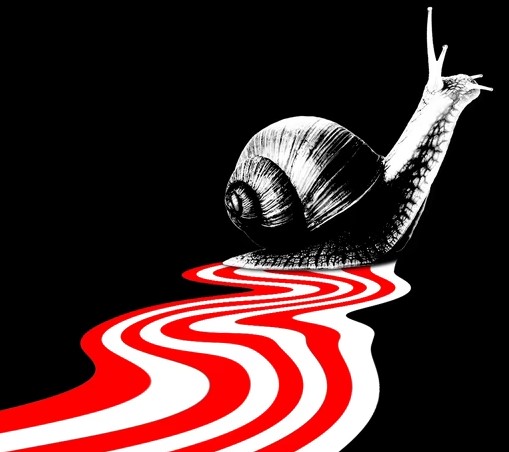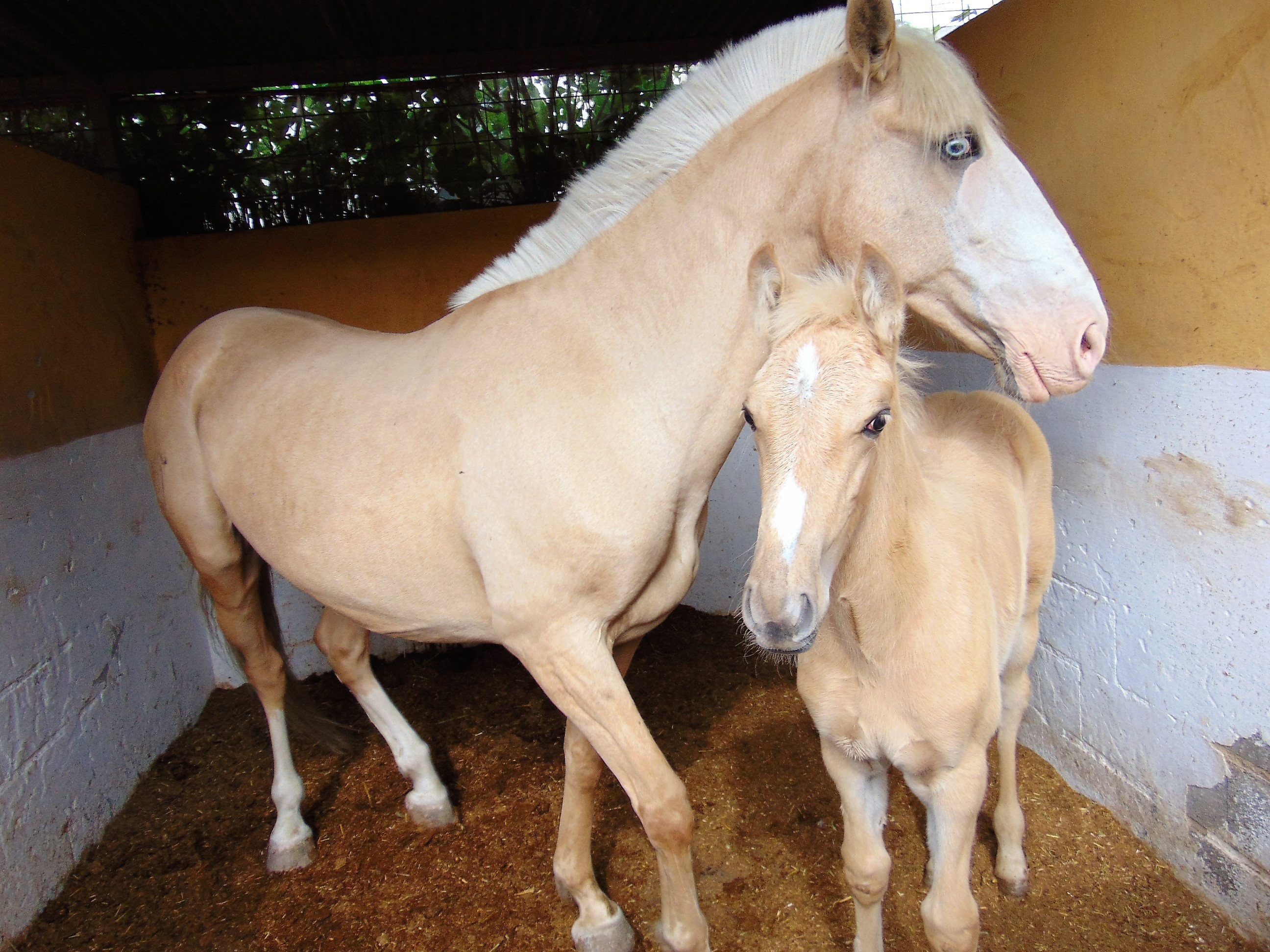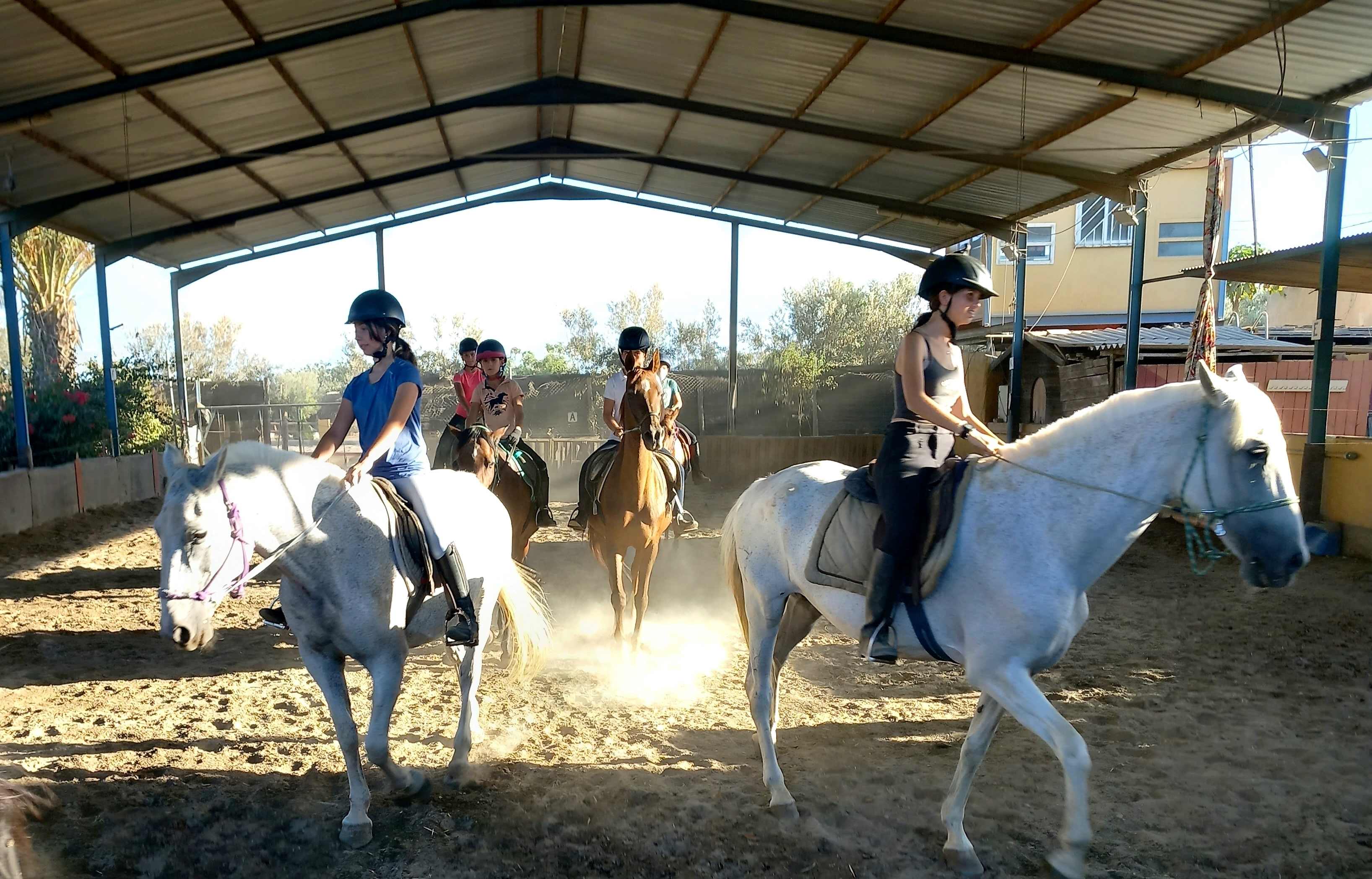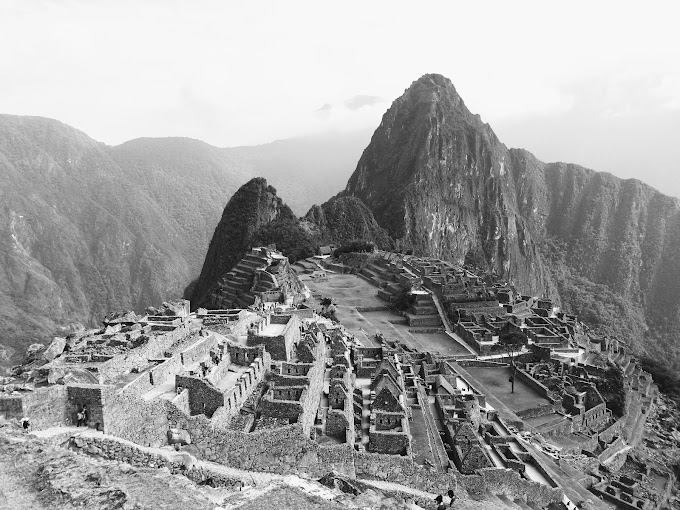The Snails of Palomares
Saturday, August 26, 2023
A USAF B52 was taking on fuel from a flying tanker somewhere over Vera (Almería) on January 21st 1966 when something went wrong – the two aircraft touched, and exploded. Debris rained down on the fields and coastline below, including four unarmed nuclear bombs.
I mean, ‘four bombs which hadn’t been armed’, rather than ‘four defenceless bombs’. That would have been cruel.
The gerfuffle as the remains of the aircraft, blobs of raw plutonium and the four bombs were re-secured by the Americans are well known. Two bombs landed on the ground in Palomares (‘falling open and melting everything in their path’ according to unverifiable reports) and the other two fell in the sea, where one was soon found while the forth was finally located in a deep trench off the coast several months later by Alvin, that cute little mini-sub that starred in the National Geographic magazines of the period. Antonio the wise old fisherman with the 150-metre ice-blue stare suggesting fully-fledged insanity may have helped. He was certainly cheaper to fuel.
Franco was on board the Fifth Fleet American destroyer for a brief visit and toying with a complimentary Easter bunny as the bomb was fortuitously hauled aboard.
A suggestion from the time was that the last bomb was in a very deep hole in the sea and was impossible to extract, so a plastic reproduction had been lowered off the other side of the ship to be triumphantly raised in front of the mad Caudillo to cheer him up.
Fraga Irribarne the Minister of Tourism, perhaps unaware of this sleight of hand, famously took a dip in the sea with the American ambassador at the time to show there was no radiation. On the other hand, they carefully enjoyed their frolic in front of the Mojacar Parador, some ten kilometres down the coast.
The Marines removed 800,000 tons of topsoil, fertile and safe, and took it to South Carolina, because, you see, there was no radiation.
It's now used to grow terbacca.
Roberto Puig, an eccentric architect, was meanwhile putting the finishing touches to his Hotel Mojácar located in the village of the same name (many, many years later, Pedro Sánchez, the future president, bought an apartment within the since-converted hotel). Roberto hired a van and drove over to Palomares and managed to secure part of a wing from the bomber, which he proudly affixed to the wall in the cave-bar under his hotel. The local wags said it had an unearthly glow.
A small desalination plant was built in Palomares by the Americans for thirty million dollars as a kind gesture (it was quickly closed down after the resident engineer moved to Mojacar to open a beach bar and, seeing that he wasn't coming back, the Catalan caretaker sold the guts of the building for scrap). A few rusting Geiger counters were left to record the ambient radiation level – if there was any – and new construction extending from Vera Playa into Palomares and Villaricos was given the go-ahead by forward thinking planners (see, I could have written ‘greedy capitalists’).
A recent test on Palomares snails (please pay attention here if you count gastropods in your carefully balanced diet) has shown a higher than normal level of radiation. Their stomach is their foot, so what they walk on, so to speak, they eat. Snail poop, we read somewhere, might spread radioactive dust.
Of course, a light wind, common in that corner of dusty Spain, will spread a lot more dust, radioactive or otherwise.
But one has to start somewhere.
The American Department of Energy, together with the CIEMAT Spanish atomic agency, eventually bought ten hectares of land which had been previously cleared by speculators ready for some building, although the dust already raised and blown to the heavens by the tractors and… no, I’m not going there.
Local ecologists have reacted to the news by saying that a much larger area needs to be sanitised.
The half-life of plutonium is a lot longer than ours.
For the meantime, my advice is, don’t eat the snails.
 3
Like
Published at 9:16 PM Comments (1)
3
Like
Published at 9:16 PM Comments (1)
The Albero Riding School
Thursday, August 24, 2023
I've been living for the past eight years or so just outside Almería City with my Spanish companion Loli who runs a riding academy called Albero Centro Ecuestre. For those interested, there's a photo-blog with a few years' worth of pictures to enjoy.
Between horses, foals, ponies and a mule, there are 37 animals to feed, water and exercise every day and three of us (Loli, her son and me) do the majority of the work - outside and under the blistering sun. I have never been fitter. Or for that matter, browner.
The horses are mainly Pura Raza Española with a few others, including Friesians, a Percheron, a Lusitano and three Arabs. Then there are a few mixes. We have two stud-horses - a PRE and a Friesian.
Some of the horses are liveried - belonging to others who use our facilities.
Then we have dogs, cats, rabbits, geese, chickens, ducks and a cage full of love-birds.
So that's us - classes every day except Sundays (and during August), plus a few other services besides. Se habla castellano, and, no, this isn't an advert.
 This summer, because its hot and we needed a change, the Almería fiestas (which lasts for nine days, they don't do things by halves here) gives the faithful students the chance to dress up and ride over to the fairgrounds (they are handily located just across a dry river-bed from us). This summer, because its hot and we needed a change, the Almería fiestas (which lasts for nine days, they don't do things by halves here) gives the faithful students the chance to dress up and ride over to the fairgrounds (they are handily located just across a dry river-bed from us).
I'm there with the camera and lots of bottles of cool water.
 xx small.jpg)
 4
Like
Published at 8:59 PM Comments (0)
4
Like
Published at 8:59 PM Comments (0)
The Quiet Life, Free from Tourism
Friday, August 18, 2023
I always wanted to go to visit Machu Picchu. 
And just stand on that hill.
The famous picture, rendered for once in black and white, occupied a wall in a Peruvian restaurant in Madrid that I used to go to. Unfortunately, the Pisco Sours were so damn good, that it was hard, after enjoying two or three of them, to remember if one had eaten yet. The crestfallen face of the owner as we asked for the bill just as the chupe de camarones was arriving…
While I didn’t remember eating much there, I still remember that photo – the one of the bent mountain high in the Andes, with the abandoned Inca settlement tumbled down below.
I travelled a lot as a young ’un in the seventies, at dollar-a-night places in Mexico and Central America, a few bucks more in the USA, and so on, as one could. The Americas, unlike Spain, hadn’t quite caught on to the idea of foreign money (except Yankee-green) in those far-off times and it was hard switching a ten pound note or a thousand pesetas into the local currency.
The thing was, there weren’t many travellers, or tourists, much beyond the crowds heading for Disneyland, Chichen Itza and Key West.
Now, of course, there are.
I missed my chance to visit Machu Picchu and now I'm told that it’s so full of visitors that I couldn’t imagine going there. Like the inspiring Mezquita in Córdoba or the Alhambra in Granada, their time as places to visit has passed. Santiago de Compostela or the Sagrada Familia in Barcelona. Don’t go. They are done; cooked; crammed; despoiled.
There are too many of us, all wanting to take a picture as we finally, after a long and impatient queue, make it through the doors. We talk, we crowd, we flash, we hold our souvenir pamphlet and we smile at the Japanese tourists with their extendable selfie-sticks.
Next time, try Jaén or Ciudad Real. They may not be much, but they’ll be more enjoyable. By far.
In Mallorca, the locals have put up signs in English saying ‘Don’t bathe here, it’s dangerous’ and underneath, in the local tongue: ‘Don’t worry, we’re just fooling the guiris’.
Well fine, don’t live in a place with lots of tourists, why don’t you?
Forget Florence, or Venice, or Barcelona, or Benidorm, or Marbella or Mojácar – buy a house somewhere quiet, with little or no tourist potential.
Because if there is one, the temptation is high: rack up those rents and open a souvenir shop.
Now my town is on the coast, it’s a suburb of Almería City. It’s ugly and has no tourism whatsoever – frankly, there’s nothing to see and the beaches aren’t worth visiting. Which means that I rarely have to take a picture, except once a year when the local saint, looking a little pale, is hauled along the main drag on a waggon pulled by a pair of bulls (relieved, no doubt to be spared other more onerous duties).
So, I was lucky. I got my travelling in early. Nowadays, I can see the world for a few pennies, from the comfort of my own armchair and with a pile of second-hand books from the charity store.
 6
Like
Published at 9:07 PM Comments (2)
6
Like
Published at 9:07 PM Comments (2)
A Murder in Thailand
Sunday, August 13, 2023
Daniel Sancho is a handsome looking chap with long hair, a big physique and a winning smile. He looks like our idea of Tarzan. His parents are both noted Spanish actors and Daniel works as a cook doing podcasts and videos from his kitchen in Thailand.
When not cooking up a storm, the twenty-nine-year-old appears to have other pastimes, including the apparent murder and dismemberment of a Colombian friend called Edwin Arrieta, a plastic surgeon, on August 1st. Bits of Edwin were later found by the police is his kitchen, with other parts scattered between a rubbish dump and the sea. ‘It took me three hours to dismember him’, says the accused. 
Daniel (with his handcuffed hands blurred in one video) has confessed, says Marca (and a hundred other news-sources): ‘I’m guilty, but I was held by Edwin like a hostage’, and he was duly hauled off by the police (after a dinner and night in a fancy hotel, paid for by the cops) and is now cooling his heels in a Thai jail.
Messages in Daniel’s phone apparently show Edwin threatening to kill him if he broke off a relationship between them. A mess. Daniel says ‘I did it, but I was trapped by Edwin’.
‘I’m sorry this all happened’ says Daniel to a cameraman (and no doubt a clutch of reporters). ‘Don’t forget me’, Daniel tells his friends before passing the prison gates.
Premeditated murder is frowned upon in Thailand, and Daniel could end up with life imprisonment or even a lethal injection at the Bang Kwang Prison in Bangkok.
Of course, there’s a thing out there called ‘the Gay Panic Defence’, where, um, a normal person loses his cool when trapped in a homosexual relationship. Maybe that’ll fly…
The sordid item has been reported and discussed endlessly in Spain during this past few weeks, with much sympathy for Daniel; and there are those that consider, like a stringer from the ABC newspaper, that Daniel is a victim rather than anything else and that he should be returned home as quickly as possible.
The Spanish naturalist Frank Cuesta, whose wife spent over six years in a Thai prison (for possession of 0.005g of cocaine) says that prison there ‘is very hard – and very expensive’.
The reason this is the lead story in every newspaper in Spain is that there’s not much else going on at the moment (besides global melting, the Ukrainian War, Donald Trump being threatened with jail, Brexit fallout and the current Spanish political crisis).
Meanwhile, in Poland, another Spaniard, a war-correspondent for Público called Pablo González, has been held for the past eighteen months accused (but not charged) of spying. There’s nothing much in the media about his situation, nor any apparent effort from the Spanish Ministry of Foreign Affairs to resolve his case.
He’s not as pretty as Daniel though. There’s that.
 2
Like
Published at 4:43 PM Comments (0)
2
Like
Published at 4:43 PM Comments (0)
The Problems with Recycling Plastic
Monday, August 7, 2023
I was wandering around the Internet and came across this: ‘Recycling is a lie. Plastic manufacturers spent $1B to make you think it’s working’. The article says that recycling campaigns are designed purely to sell more plastic.
To solve the problem of the plastic trash, a dilemma we all accept is nothing short of dreadful, why, we just sort our trash into different containers, and voilà, the plastic trash is taken to a special place, where – we hope – it will be recycled into another bottle, plate, packaging material or (if its lucky), maybe a ball-point pen.
Nat Geo says that a million plastic bottles are sold every minute in the entire world.
Wikipedia says that ‘plastic recycling is the processing of plastic waste into other products. Recycling can reduce dependence on landfill, conserve resources and protect the environment from plastic pollution and greenhouse gas emissions’.
Plastic is used in 50,000 different products, says Consumo Claro, and it’s usually made to be sturdy – after all, no one wants their shampoo bottle suddenly melting on the shelf.
However, most of it, the sources above agree, simply isn’t recycled. We are fed a fantasy about how the manufacturers are working to clean the planet (and only the irresponsible consumers are failing by not putting their emptied water bottles into the big yellow bell). In short, around 9% of single-use plastic is recycled worldwide – the rest isn’t. The first thing to know is that recycling isn’t easy (there are many different types of plastic which need different processes), and secondly – it’s a lot cheaper just to make some more out of its base materials: crude oil, cellulose, coal, salt and natural gas.
Here in Spain, according to El País, we’ve been bucking the numbers, with 51.5% recycled. This may be, reading between the lines, that just over half of all of our plastic waste finds its way into recycling bins, although that too seems unlikely. Or perhaps the figure comes from the plastic recovered from the bins. Then it would be sorted into its different base components? Greenpeace is less sanguine, and reckons it’s nearer 30% recycled.
I wonder, do we care that our bottle of pop is made from recycled plastic – and do we wonder from what purpose exactly did the recycled plastic fulfil in its earlier incarnation?
Here in Almería, surrounded by the invernaderos, the plastic farms that provide all those fresh fruit and veggies, the discarded plastic (it’ll last for around five seasons) is almost all successfully recycled (says the official fruit n’ veg association).
But not everyone else is quite as responsable.
Those tiny grains of plastic in the sea; those rotting sheets of it lying in the empty ramblas; the endless number of plastic bags, juice cartons and water bottles in the countryside; the huge piles of plastic waste in the dumps – which often end up as landfill or (in some terrible and completely unforeseen accident) on fire.
We could ease our dependence on plastic, with paper, cardboard, metal or glass (all easily recycled), but the industry has other ideas; and money talks – Hell, even when it’s plastic.
 2
Like
Published at 10:07 AM Comments (0)
2
Like
Published at 10:07 AM Comments (0)
Pop Goes the Weasel
Wednesday, August 2, 2023
It was a hot and steamy night - they always are, aren't they? - and I was wondering where the Jack in the Box came from. Perhaps I was asleep after all. Maybe I'll look it up when I get up in the morning.
Google was a trifle disappointing, as it only seemed to know about a cheap American fast-food chain operating under that name. Perhaps your hamburger is delivered to the table within a box, and when you unfasten the lid, the whole thing is abruptly lifted, bun, tomaydo and patty, to all go flying across the joint with a satisfying ¡Splatt!
I do like a novelty meal.
I later find, and thanks to The Cambridge Dictionary, that this artifice is defined as ‘a children's toy consisting of a box with a model of a person inside it that jumps out and gives you a surprise when the top of the box is raised’.
Which reminds me of a birthday I once attended in Dallas, where the figure inside the cake was not only real, but was found to be wearing just half of a bikini.
No doubt the top bit had gotten caught in the icing during her dramatic entrance.
It’s bound to be a popular thing, surprise visits from somebody are invariably interesting – if refined a bit by my fellow countrymen, who have ingeniously taken the concept one step further, as Facebook regularly tells us.
See, the Brits are always 'popping' into some place or other.
I imagine we are all sat around a table, chugging a beer, when, de repente, a small bubble appears on the floor to expand quickly and then, 'pop!', there's a Brit standing there, just like something out of Harry Potter.
We popped into Joe’s, they write, and we had a sandwich.
The half a pound of tupenny rice doggerel ends with ‘pop goes the weasel’, which, on further application to Google, tells me that the meaning of this Cockney song is to ‘pop’ (pawn) granddad’s ‘whistle and flute’ (suit) to pay for the groceries.
Which is what will allegedly happen to some of the Brits here if they don’t pull out their finger in Westminster and put up the pensions.
Those imported Bakewells don't grow on trees you know.
In Spain, the nearest thing to a Jack in the Box is a Caja Sorpresa, a similarly explosive receptacle, if only to be used once, to fire confetti into the air. Which sounds like we're at a wedding.
Maybe they could put someone inside the cake, make it even more of an event to remember.
 3
Like
Published at 12:54 PM Comments (1)
3
Like
Published at 12:54 PM Comments (1)
Spam post or Abuse? Please let us know
|
|